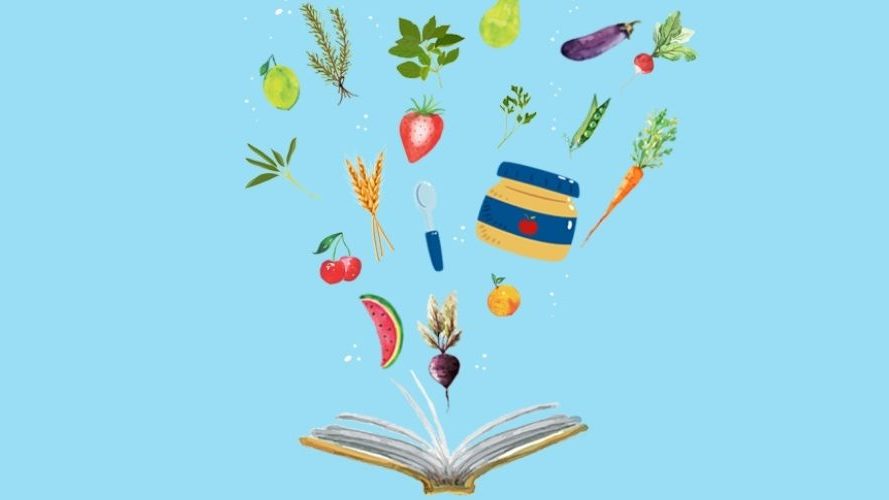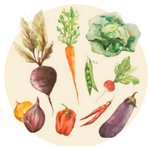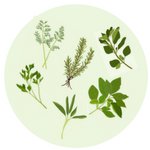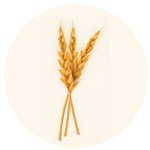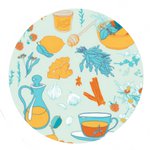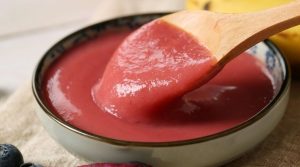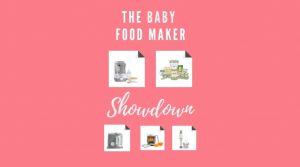The Baby Food bible The Internet's best baby recipes in one place
This is the ultimate “go to” resource for awesome, healthy, and delicious baby food recipes.
Creating your own baby food rocks.
But browsing for recipes sucks.
That’s why we’ve cherry-picked the best baby pureé recipes from the blogosphere and brought them together in one place.
You can easily search by age, ingredient, nutrition, or ailment to find a scrummy recipe in seconds.
Bon apétit, bubba!

Find the perfect pureé by...
Pureés by Age & Stage
Introducing solid food to your baby is a step-by-step process.
It is important that baby’s first foods are gentle and easy to digest. Then, as their gut develops, a wider variety of ingredients can be added to the menu.
In this section, you’ll find baby food recipes that you can make at home suitable for each stage of growth.
Always consult with your paediatrician before introducing solid foods to your baby.

4-6 months+
Stage 1
The AAP and WHO both recommend exclusive breastfeeding until 6-months. That said, the AAP suggest that baby may be ready to start solids between 4 to 6-months. Watch out for their physical cues, which include watching you as you eat and reaching out for food. If your baby is eating solids from 4-months, here are some safe and nutritious recipes they can try.
6-8 months+
Stage 1
Stage 1 foods don’t need to be bland! “It’s important to introduce a variety of flavors, textures and colors.” (AAP) Breastmilk or formula will continue to be baby’s primary source of nutrition, so first foods are more about fun and exploration. Introduce new ingredients one at a time. This makes it easier to spot the cause of any allergic reaction.
8-10 months+
Stage 2
Stage 2 Baby Foods are processed or blended chunkier and can include new ingredients that your baby’s developing gut can healthily digest. Some protein rich foods, dairy, and additional grains may be added, plus fruits and veggies which are more fibrous and acidic. Here are some Stage 2 recipes that are exciting, delicious, and nutritious. Yummy!
10-12 months+
Stage 3
Stage 3 Foods follow the same trend introducing new ingredients that your baby’s digestive system can now tolerate while extracting the goodness. The menu can often now include more protein dense foods including dairy products. More acidic fruits and berries are often tried out at this stage, too. Give these a try.
Pureés by Fruit
Fruit, glorious fruit!
Fruit offer a huge variety of color, flavor, and texture. They also pack a myriad of nutritional benefits.
Being naturally sweet fruit are a first food favorite that can be pureéd with veggies to make them palatable too.
Here are the best baby food recipes sorted by fruit…
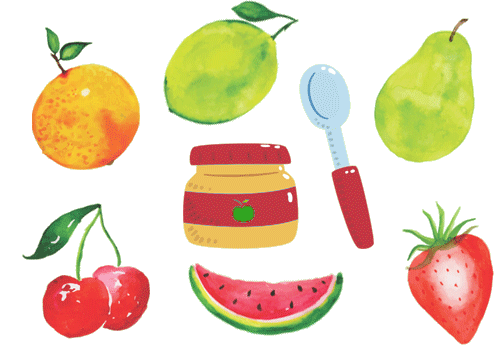
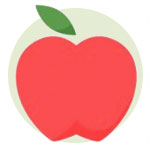
Apple
4-6 months+
Aah, the good old apple; America’s (second) favorite fruit. This classic first food is yummy, easy to digest, and high in both antioxidants and Vitamin C. Perfect in a pureé for baby’s toothless gums.
Key Nutrients
Vitamins
Vitamin A
Vitamin C
Folate
Vitamin E
Minerals
Potassium
Calcium
Phosphorus
Magnesium
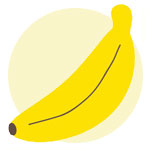
Banana
4-6 months+
Banana is the quintessential baby food. Sweet, mushy, and easy to digest, bananas are good source of vitamins, minerals, and fiber too. Their sweetness in a veggie pureé will help baby to eat it.
Key Nutrients
Vitamins
Vitamin C
Folate
Vitamin B6
Niacin
Vitamin B5
Minerals
Potassium
Magnesium
Phosphorus
Calcium
Iron
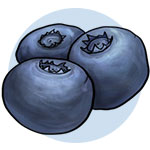
Blueberries
8-10 months+
Blueberries are a “superfood” rich in anti-oxidants, anti-inflammatories, Vitamin A, C, and fiber. Usually fine from 6-months, they can (very) rarely cause allergic reactions, so we say 8+ months.
Key Nutrients
Vitamins
Vitamin C
Vitamin K
Folate
Niacin
Lutein
*High in fiber
Minerals
Potassium
Magnesium
Calcium
Sodium
Iron

Cherries
8-10 months+
Cherries are deliciously sweet and fresh and come loaded with antioxidants and essential minerals. Cooked cherries can be introduced earlier. (Source)
Key Nutrients
Vitamins
Vitamin A
Vitamin C
Vitamin K
Folate
Minerals
Potassium
Phosphorus
Magnesium
Calcium
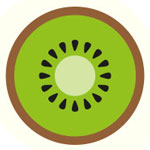
Kiwi
8-10 months+
Kiwi, the tropical gem, is a great source of Vitamin C and K. It’s a very good source of copper and dietary fiber. It’s a bit acidic for babies under 8-months.
Nutrient Highlights
Vitamins
Vitamin A
Vitamin C
Vitamin K
Folate
*High in fiber
Minerals
Potassium
Copper
Manganese
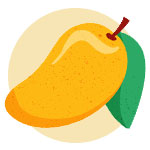
Mango
6-8 months+
Mango, the king of tropical fruit, is sweet and succulent. It is a great immune-booster thanks to a high Vitamin A content, and it tastes delicious.
Key Nutrients
Vitamins
Vitamin A
Vitamin C
Vitamin K
Folate
Minerals
Potassium
Magnesium
Sodium
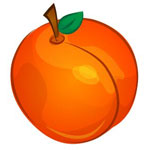
Peaches & Nectarines
6-8 months+
Peaches are a fantastic first baby food. Sweet and juicy, they contain lots of Vitamin A and C; great for baby’s immune system. Like prunes, they can be used as a natural laxative to get things moving if baby’s clogged up. (Source)
Key Nutrients
Vitamins
Vitamin A
Vitamin C
Niacin
Minerals
Potassium
Phosphorus
Magnesium
Calcium
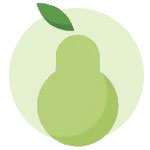
Pear
4-6 months+
Pears are a classic first food. They are sweet, gentle on tummies, and go well with almost anything. Rich in antioxidants, anti-inflammatories, and anticancer compounds like cinnamic acid, they are a good source of fiber, Vitamin C and K.
Key Nutrients
Vitamins
Vitamin B6
Ribofalvin
Folate
*High in fiber
Minerals
Potassium
Copper
Manganese
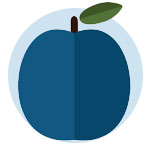
Plums & Prunes
6-8 months+
Plums and prunes (dried plums) are sweet and tasty and do wonders for the body. They are a good source of Vitamin C, K, copper, and potassium. Their high fiber content are what make plums and prunes famous for their bowel-regulating abilities.
Key Nutrients
Vitamins
Vitamin A
Vitamin C
Vitamin K
Niacin
*High in fiber
Minerals
Potassium
Magnesium
Copper

Strawberries
10-12 months+
Strawberries are a vibrant red “superfood” which are packed with vitamins, minerals, antioxidants, fiber, and even a pinch of omega-3. Fresh strawberries can cause food reactions in babies, so we recommend introducing from 10 months.
Key Nutrients
Vitamins
Vitamin A
Vitamin C
Thiamin
Riboflavin
Folate
Minerals
Potassium
Magnesium
Calcium
Manganese
Iodine
Pureé by Vegetable
Aaah, veggies! A veritable treasure trove of vitamins, minerals, and other nutrients.
Vegetables are ideal first foods and make fantastic pureés. So go wild and introduce a wide variety of organic goodness.
Here are the best baby food recipes sorted by vegetable…
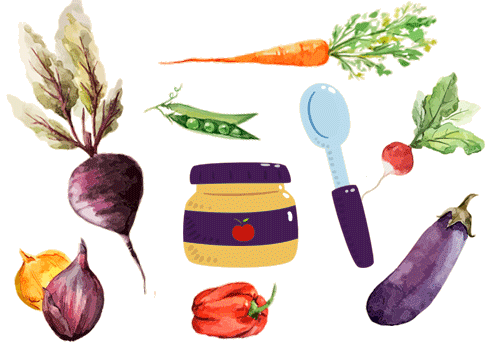
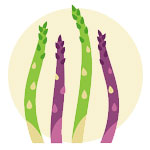
Asparagus
8-10 months+
Asparagus is a wonderful, nutrient dense food but it can be a little gassy. To avoid problems, save it until baby is around 8-months. They make creamy pureés rich in micronutrients and they’re super healthy.
Key Nutrients
Vitamins
Vitamin C
Niacin
Folate
Vitamin B1
Vitamin B6
Vitamin K
*High in fiber and protein
Minerals
Potassium
Phosphorus
Magnesium
Calcium
Sodium
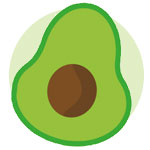
Avocado
4-6 months+
Avocado (technically a fruit) is a fantastic first food. Its creamy texture and mild flavor are perfect for mushy baby food. They are full of vitamins like K, B6, E and C, and contain healthy fats too.
Key Nutrients
Vitamins
Pantothenic acid
Vitamin K
Vitamin E
Vitamin C
Vitamin B6
*High in fiber
Minerals
Potassium
Copper
Folate
Magnesium
Calcium
Sodium
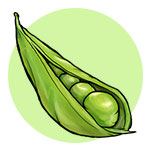
Beans (Green)
4-6 months+
Green beans are a great source of vitamin K. They also pack a serious amount of manganese, vitamin C, dietary fiber, folate and vitamin B2. Together these support the immune system.
Key Nutrients
Vitamins
Vitamin K
Vitamin C
Vitamin B2
Vitamin B1
Vitamin A
Folate
*High in fiber and protein
Minerals
Manganese
Copper
Chromium
Magnesium
Calcium
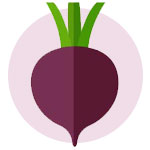
Beets
8-10 months+
Beets are a great source of folate, manganese, potassium and copper. Their pigmentation comes from betalains which are powerful antioxidants, anti-inflammatories and detoxifiers. (Warning: Turns poop reddy-purple!)
Key Nutrients
Vitamins
Folate
Vitamin C
Vitamin B6
*High in fiber
Minerals
Manganese
Potassium
Copper
Chromium

Broccoli
8-10 months+
Broccoli is another “superfood” that contains lots of vitamin K, C, chromium, and folate. Wait till 8-months to avoid gas. It has anti-cancer, anti-inflammatory and antioxidant qualities, helps to detoxify the body, and reduces stress.
Key Nutrients
Vitamins
Vitamin K
Vitamin C
Folate
Pantothenic acid
*High in fiber
Minerals
Chromium
Manganese
Phosphorus
Choline
Copper
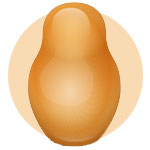
Butternut Squash
4-6 months+
Butternut Squash purees beautifully, adding a gorgeous golden color and rich, sweet flavor that baby will love. They are high fiber, help boost baby’s nutrient intake, help to regulate blood sugar, and provide antioxidant benefits.
Key Nutrients
Vitamins
Vitamin A
Vitamin C
Vitamin B6
Vitamin B2
Folate
*High in fiber
Minerals
Manganese
Copper
Potassium
Magnesium

Carrot
6-8 months+
Carrots are colorful, sweet, and easy on the tummy – ideal first foods. An excellent source of Vitamin A, they’re packed with antioxidants including beta-carotene which gives them their orange color.
Key Nutrients
Vitamins
Vitamin A
Vitamin K
Vitamin B6
Vitamin C
Folate
*High in fiber
Minerals
Molybdenum
Potassium
Manganese
Phosphorus
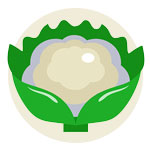
Cauliflower
8-10 months+
Cauliflowers pack serious levels of Vitamin C, K, and folate. This makes them great immune boosters while also supporting the cardiovascular, digestive, and detoxification systems.
Key Nutrients
Vitamins
Vitamin C
Vitamin K
Folate
Pantothenic acid
Vitamin B6
*High in fiber and omega-3
Minerals
Manganese
Phosphorus
Potassium

Cucumber
8-10 months+
Cucumbers are a great source of vitamin K used in blood clotting. They also contain a variety of phytonutrients which provide antioxidant, anti-inflammatory, and potential anti-cancer benefits.
Key Nutrients
Vitamins
Vitamin K
Pantothenic acid
Vitamin C
Vitamin B1
Minerals
Molybdenum
Copper
Potassium
Manganese
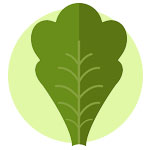
Kale
6-8 months+
Kale is a widely recognized “superfood,” and with good reason. It delivers a huge hit of Vitamins K, A and C, and is rich in iron calcium, and lutein (great for the eyes).
Key Nutrients
Vitamins
Vitamin K
Vitamin A
Vitamin C
Vitamin B6
Vitamin E
*High in fiber
Minerals
Manganese
Copper
Calcium
Potassium
Iron
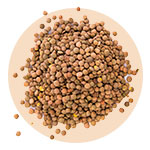
Lentils
8-10 months+
Lentils are a great, healthy option for baby. They are creamy and versatile in pureés. Lentils are high in protein, fiber, and iron, and are a good source of several B vitamins. (Source)
Key Nutrients
Vitamins
Vitamin B1
Pantothenic Acid
*High in fiber and protein
Minerals
Molybdenum
Folate
Copper
Phosphorus
Manganese
Iron

Peas
6-8 months+
Peas are nutritious and easy on the tummy. High in Vitamin K and C, they contain antioxidants and anti-inflammatories, and are good for blood sugar regulation. (Source)
Key Nutrients
Vitamins
Vitamin K
Vitamin B1
Vitamin C
*High in fiber and protein
Minerals
Manganese
Copper
Phosphorus
Folate
Zinc
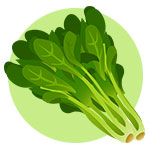
Spinach
8-10 months+
This dark green, leafy “superfood” is one of the healthiest foods your baby can eat. A single serving provides all of our daily recommended intake (DRI) of Vitamin K and A, most of our manganese and folate, and a substantial proportion of our iron, copper, calcium, Vitamin B2, and B6. It’s also high in fiber and protein. (Source)
Key Nutrients
Vitamins
Vitamin K
Vitamin A
Folate
Vitamin B2
Vitamin B6
Vitamin E
Vitamin C
*High in fiber and protein
Minerals
Manganese
Magnesium
Iron
Copper
Calcium
Potassium
Phosphorus

Sweet Potato
4-6 months+
Sweet potatoes are a fantastic first food for babies. They are sweet, creamy, and colorful, and make delicious pureés. A single (200g) portion provides more than 100% of our daily Vitamin A needs, and 50% of our Vitamin C. It helps to boost baby’s immune system and the high fiber content will help keep bowels regulated.
Key Nutrients
Vitamins
Vitamin A
Vitamin C
Vitamin B6
*High in fiber
Minerals
Manganese
Copper
Pantothenic Acid
Biotin
Potassium
Pureé by Herb & Spice
Herbs, Spice, and all things nice!
Long gone are the days of bland baby food. Experts now agree that you can introduce aromatic (not hot) spices and herbs early on. (Source)
Herbs and spices help to develop baby’s palette and, what’s more, they are full of healthy micronutrients.
Here are the best baby food recipes sorted by herb and spice…
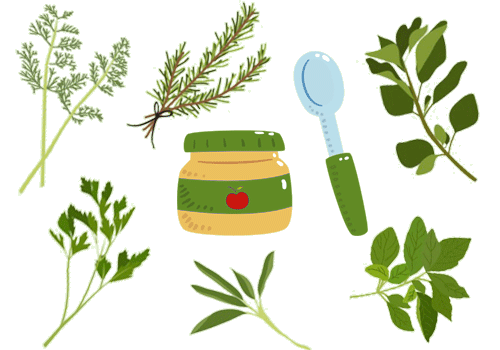

Basil
6-8 months+
Deeply aromatic and tending to go well with many different ingredients, basil is a great herb to introduce into your baby’s diet. It is high in Vitamins K, A, C and folic acid (folate), and it also contains essential antibacterial minerals.
Key Nutrients
Vitamins
Vitamin K
Vitamin A
Vitamin C
Folate
Minerals
Manganese
Copper
Calcium
Iron

Cinnamon
6-8 months+
Cinnamon is a distinctive and aromatic spice that marries beautifully with many early foods including apple and pear. It has powerful antimicrobial and anti-clotting properties, and helps to control blood sugar. (Source)
Key Nutrients
Vitamins
Vitamin K
*High in fiber
Minerals
Manganese
Calcium
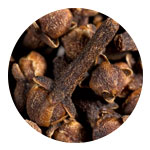
Cloves
6-8 months+
Cloves have a beautifully distinctive aroma which goes well with Indian flavors or spicy baked fruit and veggies from apple to sweet potato. Cloves are a good source of manganese, Vitamin K, fiber, iron, magnesium and calcium.
Key Nutrients
Vitamins
Vitamin K
*High in fiber
Minerals
Manganese
Fiber
Iron
Magnesium
Calcium
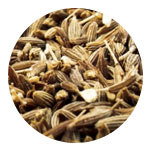
Cumin
6-8 months+
Traditionally an Indian spice, cumin has a gorgeous aroma and is actually very versatile. Its seeds are a fantastic source of iron, integral to oxygenating the blood and important for boosting baby’s immune system. (Source)
Key Nutrients
Vitamins
Vitamin B1
Minerals
Iron
Manganese
Copper
Calcium

Ginger
6-8 months+
Ginger is a gorgeously pungent and aromatic root that can bring a beautiful flavor to baby food. It has many therapeutic qualities including antioxidant, anti-inflammatory, and immune boosting effects. (Source)
Key Nutrients
Vitamins
Vitamin B6
Minerals
Magnesium
Copper
Mint
6-8 months+
Mint brings a cool, fresh, and zingy flavor into your baby’s food. It contains large amounts of Vitamin C and manganese, and has many health benefits including soothing tummies and clearing airways. (Source)
Key Nutrients
Vitamins
Vitamin C
Minerals
Manganese
Copper

Nutmeg
6-8 months+
Nutmeg is a gorgeously aromatic spice which is a great source of copper and manganese. It has medicinal properties thanks to compounds such as myristicin and elemicin which have been shown to stimulate brain activity. (Source)
Key Nutrients
Vitamins
Vitamin A
Vitamin C
Folates
Minerals
Copper
Iron
Magnesium
Manganese

Rosemary
6-8 months+
Rosemary brings a warm and herby tone to fruit and veggie pureés. A good source of Vitamin A, it also contains medicinal compounds which stimulate the immune system, increase circulation, and improve digestion. (Source)
Key Nutrients
Vitamins
Vitamin A
Folate
Vitamin C
Minerals
Calcium
Iron
Magnesium

Turmeric
6-8 months+
Turmeric is an ancient spice used both for its flavor and many health benefits. It has anti-inflammatory qualities, can ease digestion, balance blood sugar levels, plus it can decrease the risk of cancer. Bibs are essential to avoid yellow stains! (Source)
Key Nutrients
Vitamins
Vitamin B6
Minerals
Manganese
Iron
Fiber
Copper
Pureé by Grain & Seed
Grains and seeds are an important part of balanced, healthy diet. They are great sources of complex carbohydrates, protein, healthy fats and a myriad of essential vitamins and minerals.
Here are the best baby food recipes sorted by grain and seed…
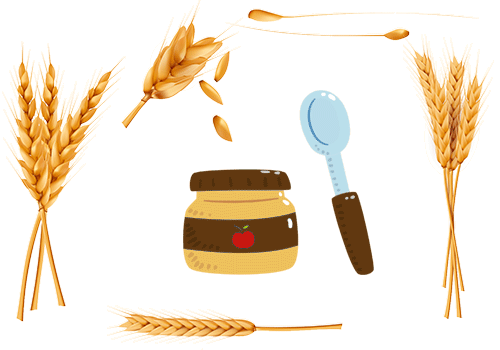
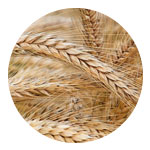
Barley
4-6 months+
Barley is a wonderfully chewy and nutty grain that is a great alternative to pasta. Very high in fiber and other vitamins and minerals, it helps to keep baby regular while promoting friendly bacteria in the gut. (Source)
Key Nutrients
Vitamins
Vitamin B1
*High in fiber
Minerals
Molybdenum
Manganese
Fiber
Selenium

Chia Seeds
8-10 months+
Chia seeds are a tiny but powerful “superfood”. They pack an enormous amount of healthy fiber, protein, and fats (including omega-3), plus they are rich in antioxidants and other micronutrients. (Source)
Key Nutrients
Vitamins
Folates
Niacin
Thiamine
Vitamin A
Minerals
Calcium
Copper
Magnesium
Manganese
Phosphorus
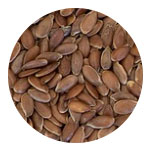
Flax Seeds
8-10 months+
Flax seeds are a “superfood” and one of the best sources of omega-3 fats, vital for healthy brain development. They are also good for the digestion but need to be ground up so baby can absorb the nutrients.
Key Nutrients
Vitamins
Vitamin B1
Minerals
Copper
Manganese
Fiber
Magnesium
Selenium

Oats
4-6 months+
Oats are a deliciously chewy and super versatile grain that are a firm favorite in most households. They are high in fiber, Vitamin B1 and manganese, and they are a natural antioxidant.
Key Nutrients
Vitamins
Vitamin B1
*High in fiber
Minerals
Manganese
Molybdenum
Phosphorus
Copper

Quinoa
8-10 months+
This delicious “superfood” is a complete protein containing all the amino acids which makes it a great choice for vegetarian families. It’s also gluten free, so easier on the gut.
Key Nutrients
Vitamins
Folate
*High in fiber and protein
Minerals
Manganese
Phosphorus
Copper
Magnesium
Pureé by Dairy
Dairy is dandy – and not just for bones!
Full of calcium, potassium, vitamin D, and protein, dairy products are great as part of a balanced diet, and support the overall health and maintenance of your baby’s body.
Here are the best baby food recipes sorted by diary product…
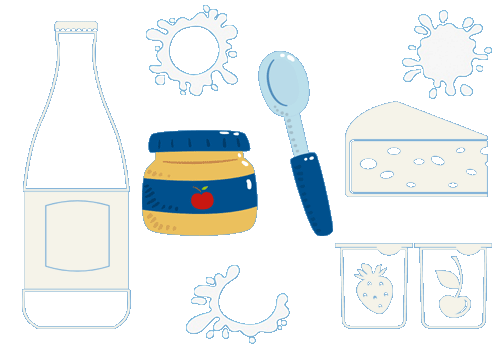
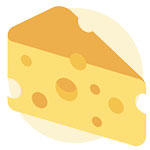
Cheese
8-10 months+
Dairy is a common baby allergen, so it’s important to introduce cheese slowly starting with non-soft varieties like Colby or Mild Cheddar. It contains calcium, “healthy” fats, and protein. (Source)
Key Nutrients
Vitamins
Vitamin B12
*High in protein
Minerals
Phosphorus
Calcium
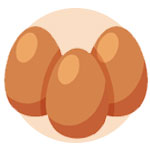
Eggs (Yolk)
8-10 months+
Eggs are a common allergen. Experts advise that you introduce yolks from 8-months and egg whites from 12-months. That said, they are packed full of protein and micronutrients. (Source)
Key Nutrients
Vitamins
Vitamin B12
Vitamin B2
Vitamin D
Vitamin A
*High in protein
Minerals
Choline
Selenium

Yogurt
6-8 months+
Live yogurt is a natural probiotic which improves gut health and is easier to digest than other dairy products. It’s a high protein first food and is rich in calcium (great for healthy teeth and bones).
Key Nutrients
Vitamins
Vitamin B2
Vitamin B12
*High in protein
Minerals
Manganese
Iron
Fiber
Copper
Potassium
Pureé by Vitamin & Mineral
Vitamins and minerals are essential micronutrients.
They perform literally thousands of vital molecular tasks within the body. Immune boosting, wound healing, brain functioning, nervous system maintaining, toxin busting… the list is endless.
In short, they keep us in tip-top condition!
Here are the best baby food recipes sorted by vitamin and mineral…
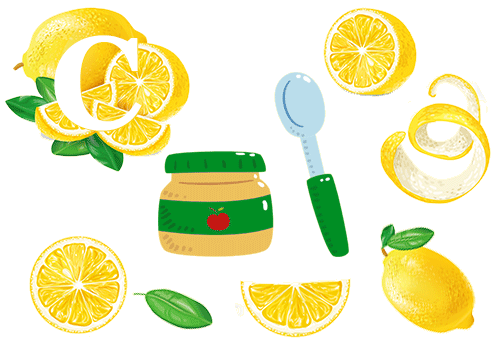
Calcium
Calcium supports nerve and muscle health, and is important for building strong teeth and bones.
Found in
yogurt, tofu, kale, broccoli, and bok choy
Folic acid
Folic acid (folate) is an important B Vitamin that supports the brain, nervous system, and helps with cell growth.
Found in
pulses, beans, and green leafy vegetables
Iron
Iron is important for making hemoglobin which keeps the oxygen travelling around our body.
Found in
pulses, beans, egg yolk, tofu, spinach, and dried fruit (apricots/raisins)
Manganese
Manganese is an awesome antioxidant that helps to protect our bodies from various diseases.
Found in
green leafy veg, nuts, cloves, raspberries, black beans, tofu, and whole grains
Potassium
Potassium balances our sodium levels, reduces our risk of heart disease and is vital for bone and muscle health.
Found in
sweet potato, spinach, avocado, cantaloupe, nuts, seeds, and whole grains

Vitamin A
Vitamin A improves the health and regrowth of our skin, hair and nails. It’s important for eyes, too.
Found in
green leafy vegetables, carrots, butternut squash, and sweet potatoes
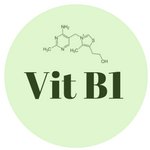
Vitamin B1
This B Vitamin (thiamin) converts carbohydrates into energy during metabolism.
Found in
lentils, black beans, barley, peas, seeds, and eggs

Vitamin B5
Vitamin B5 (pantothenic acid) helps us to metabolise fats, proteins, and carbs, and is vital for hormone production.
Found in
cauliflower, mushrooms, avocado, and sweet potato

Vitamin C
Vitamin C is essential for repairing tissues and keeping the immune system in good health
Found in
broccoli, oranges, strawberries, kiwi, and cantaloupe

Vitamin D1
Vitamin D boosts the absorption of calcium, magnesium, and phosphate. It helps to keep teeth and bones healthy, and defends against diseases.
Found in
mushrooms, eggs, and cheese
Zinc
Zinc plays a vital role in our immune system and cell growth and repair. It stimulates healthy appetite and is important for learning and memory. (Source)
Found in
spinach, asparagus, quinoia, lentils, nuts, and seeds
Pureé by Ailment & sickness
Healthy foods packed with micronutrients have a wealth of medicinal and healing properties.
Choosing ingredients rich in vitamins and minerals can support your baby’s immune system and help defend them against bugs and other nasties.
Always consult with your pediatrician regarding using food as a complimentary treatment for ailments. They should never be used as a replacements for the advice or treatments given by your doctor.
Here are the best baby food recipes sorted by the ailments they may help with…
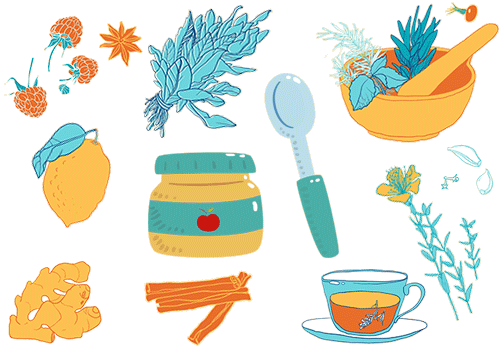
Colds & Flu
Supportive foods include
strawberries, kiwi, cantaloupe, turmeric, egg yolk, and broccoli
Constipation
It may be a good idea to add some fruit or vegetables with a natural laxative effect. Try baby pureés with fibrous ingredients such as prunes or apricots to get things moving again.
And don’t forget to keep feeding milk. It’s important that baby remains hydrated.
Supportive foods include
apricots, prunes, peaches, plums, pears, peas, and spinach
Diarrhea
This information should never replace professional medical advice. Diarrhea can be serious health risk. It’s important that you consult with your doctor.
Natural and healthy foods which are easy on the gut and help to “bind” poops may help. (Source)
Supportive foods incude
Bananas, cooked carrots and white potato, bio-yogurt, and applesauce (cooked apple pureé)
Sleep Problems
Supportive foods include
pineapples, bananas, oranges, chia seeds, cooked spinach, tofu, and pumpkin
Ear Infection
Supportive foods will generally boost immune function and increase antioxidants within the body. Micronutrients that help are Vitamins C, B, A and K, folic cid, zinc, selenium, iron, copper and manganese.
Supportive foods include
kale, spinach, turmeric, broccoli, oranges, cauliflower, and strawberries
Eczema
You might try foods high in quercetin. Quercetin is a plant-based flavonoid which is a powerful antioxidant and antihistamine. It can help to reduce inflammation and histamine levels in the body. (Source)
Supportive foods incude
apples, blueberries, cherries, broccoli, spinach, and kale
Wrapping up
Making your own baby food is a fantastic way to control what your baby eats. There are many reasons this is great, including;
- you can pick high quality ingredients;
- you can expand their palette in a nuanced way by introducing new flavors and textures when you want;
- you can cater to just about any diet or allergy requirements; and finally
- you can ensure that your baby is getting the perfect balance of food types and micronutrients.
Not got a baby food processor yet? Check out our guide on the best baby food makers that you can buy.
This Baby Food Bible is your resource. So keep coming back and trying new recipes.
If you’ve got a recipe suggestion, then give us a shout; if we like it, we’ll feature it.
Go forth, be creative, and get blending!
Neve & Keane x
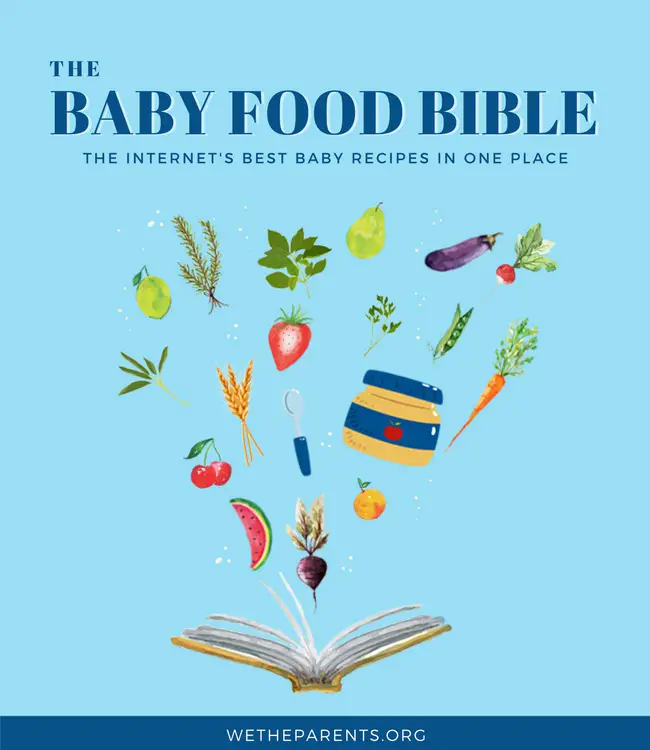
References
- https://www.aap.org
- https://www.healthychildren.org
- http://whfoods.org
- http://wholesomebabyfood.momtastic.com
- http://www.babyfoode.com
- https://www.livescience.com/36487-babies-spicy-food-introducing-solids-spices.html
- https://draxe.com
- https://www.medicalnewstoday.com/articles/263176.php


